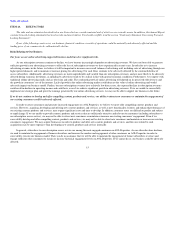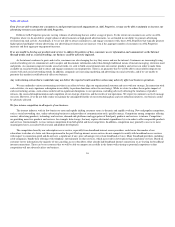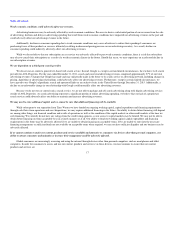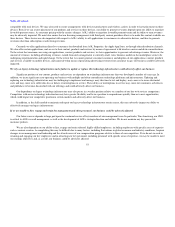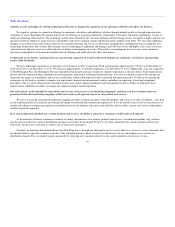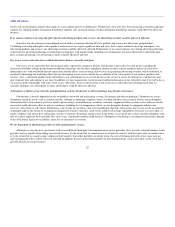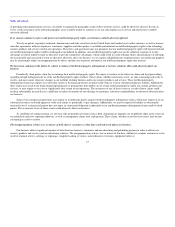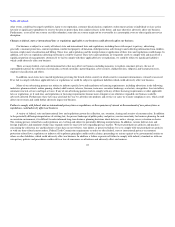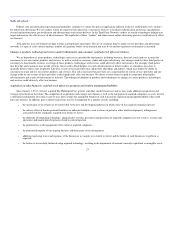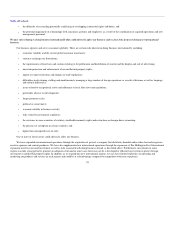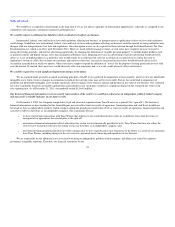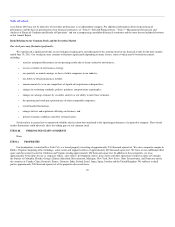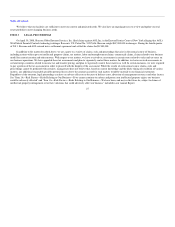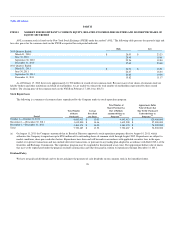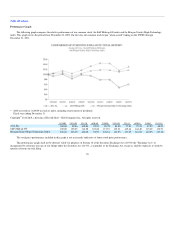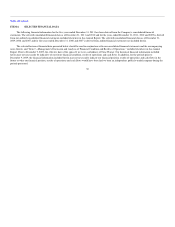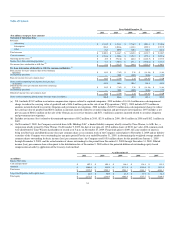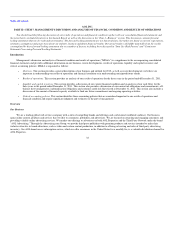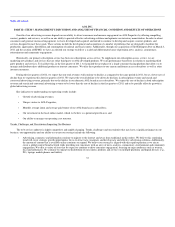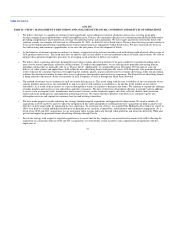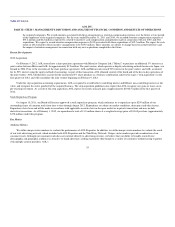America Online 2011 Annual Report Download - page 29
Download and view the complete annual report
Please find page 29 of the 2011 America Online annual report below. You can navigate through the pages in the report by either clicking on the pages listed below, or by using the keyword search tool below to find specific information within the annual report.
Table of Contents
We could be at a competitive disadvantage in the long term if we are not able to capitalize on international opportunities, especially as compared to our
competitors who maintain a continuous expansive global presence.
We could be subject to additional tax liabilities which could adversely affect our business.
International, federal, state and local tax laws and regulations affecting our business, or interpretations or application of these tax laws and regulations,
could change. In addition, new international, federal, state and local tax laws and regulations affecting our business could be enacted or taxing authorities may
disagree with our interpretation of tax laws and regulations. Our subscription access service is protected from taxation through the Federal Internet Tax Non-
Discrimination Act, which is in effect until November 2014. However, faced with decreasing revenues, several states have sought to increase revenue by
taxing advertising generally, and internet advertising specifically, by changing the definition of "tangible personal property" to include digital products such
as parental controls and digital storage, or by increasing general business taxes. Imposing new taxes on advertising or internet advertising would adversely
affect us. A tax on digital products in a particular state would require us to either pay the sales tax on all non-access paid services sold in that state or
implement a system to collect the tax from our customers and remit it to that state. An increase in general business taxes would adversely affect us if it
occurred in a jurisdiction in which we operate. Other states have sought to expand the definition of "nexus" for the purpose of taxing goods and services sold
over the internet. If enacted, these new taxes would adversely affect our consumers and, as a result, could adversely affect our business.
We could be required to record significant impairment charges in the future.
We are required under generally accepted accounting principles (GAAP) to test goodwill for impairment at least annually, and to review our identifiable
intangible assets when events or changes in circumstances indicate the carrying value may not be recoverable. Factors that could lead to impairment of
goodwill and identifiable intangible assets include significant adverse changes in the business climate and declines in the value of our business. Our estimated
fair value is primarily based on our market capitalization and volatility in our stock price could have a significant impact on the estimated fair value of our
sole reporting unit. As of December 31, 2011, our goodwill totaled $1,064.0 million.
Our historical financial information is not necessarily representative of the results we would have achieved as an independent, publicly-traded company
and may not be a reliable indicator of our future results.
On December 9, 2009, the Company completed its legal and structural separation from Time Warner via a spin-off (the "spin-off"). The historical
financial information we have included in this Annual Report may not reflect what our results of operations, financial position and cash flows would have
been had we been an independent, publicly-traded company during the periods presented before 2010, or what our results of operations, financial position and
cash flows will be in the future as an independent company. This is primarily because:
• we have entered into transactions with Time Warner that either have not existed historically or that are on different terms than the terms of
arrangements or agreements that existed prior to the spin-off;
• our historical financial information reflects allocations for certain services historically provided to us by Time Warner that may not reflect the
costs we have incurred or will incur for similar services in the future as an independent company; and
• our historical financial information does not reflect changes that we have experienced or may experience in the future as a result of our separation
from Time Warner, including changes in the cost structure, personnel needs, financing and operations of our business.
We are responsible for the additional costs associated with being an independent, publicly-traded company, including costs related to corporate
governance and public reporting. Therefore, our financial statements for the
25


